Assessing the moment  Pancreatitis is inflammation of the pancreas, which the pancreas can heal on its own. But to do so, it must be allowed to focus on that task. Calling it away for its usual duty of producing digestive enzymes or insulin will distract it and thereby prolong healing. That restriction has wrecked some havoc on my diet. Initially I was on a liquid diet and then slowly graduated to more solid food. So long as I stay within my restrictions and keep my meals small (this also helps the pancreas to focus on healing), I should be fine. That said, I still feel swings in my abdomen. Some moments feel better than others. I have even worse swings from my pulmonary embolism. The blood thinners I’m on have some funky side effects, one of which is lightheadedness. It comes and goes, some moments being better than others. Today was particularly bad. The lightheadedness was extreme as I’d never before felt in my life, and it stayed with me the whole morning. I spent much of the day today in the emergency room, where the doctor finally concluded I was experiencing a side effect of my meds. Confronting the moment How do I deal with a condition that not only constantly changes but changes so often I don’t really know how I’ll be the next day? The only real option I have is to do the best I can to attend to the demands of the moment. My condition forces it on me. But that’s not very different from what I’ve been sharing here on Joy in the Journey Radio. We find our best joy in life from living in the moment. Letting go of what things will mean tomorrow opens a door that otherwise remains closed. For example, LDS singles leave much joy on the table when dating by worrying about what different social interactions will mean for them tomorrow. “I don’t want to sit next to those people because then they’ll think I’m interested, and I’m not.” We think we know so much, yet in truth, we don’t know that much, and we see even less. There’s countless tales of couples who didn’t think they were right for each other but who are very happy today because they let go of what they thought they needed and embraced the opportunity in the moment. Embracing the moment Of course, letting go of what things will mean tomorrow isn’t license for leaving the covenant path. I’m in no way suggesting we ignore the consequences of sin. What I’m saying is that within the confines of our covenants we too often focus outside of the present moment, and that focus leaves a lot of joy on the table we could have every day by living in the present moment. By embracing the moments that come within the confines of our covenants, we position ourselves for maximum joy. Redefining what we consider opportunity to be reveals more pathways to experience that joy. The road can still be rough, as I can attest. Some of the moments that confront me are less than pleasant. But I know by doing my best with each moment, I know I’m making my journey as good as it can be. Embrace your life one day at a time. When you stop living in some future that never seems to come or the past that you cannot change, you find more possibilities in your life. You’ll gain more perspective that breeds more hope for the future. And that will bring you more joy in your journey.
0 Comments
That attitude can greatly bless the lives of us LDS singles as we interact with each other. Too often we see opportunities to interact through the lens of dating, which often pulls us away from blessing others’ lives. Seeing through the lens of friendship, we’ll more often provide needed assistance. It’s time for LDS singles to re-hoist friendship in dating and singles groups. Just listen  In the video, John admits he couldn’t “fix” Troy, nor did he attempt to. In fact, the casual observer might conclude John didn’t do much at all. John certainly wanted to help, but given everything so many others were doing, John didn’t see much for him to do. Then he started doing something more of us need to do more often; he listened. John invited Troy to ride with him in his truck and let Troy say whatever he wanted. John simply listened. There’s probably a lot the video doesn’t show. But the simple act of listening is beyond profound. We all have a basic human need to be heard and to feel understood. By not directing Troy or trying to give him something, John showed complete respect for Troy’s agency. And by simply listening to Troy, John declared he would stand by Troy regardless of the path Troy chose or what pace he pursued. That’s the mark of a true friend. What blessing could we be to other LDS singles if we simply listened more? Instead of interacting only with those whom we want to date, what if we interacted with everyone with an interest in understanding them or simply letting them be heard? By putting aside the personal agenda, we re-hoist friendship to its rightful valued place. See sameness  Many LDS singles see a duality in their local Church community, especially in geographic wards. There’s the singles and the marrieds. It’s an extremely common perspective among singles. But the story in the video takes a different perspective. The two groups there were the grieving (Troy and his family) and the supporters (everyone else trying to help). That’s significant. John viewed Troy as a brother, not someone fundamentally different. If we LDS singles could see one another more as brothers and sisters, we could re-hoist friendship in a new culture of togetherness. Now, I know some of you are saying. “Yeah, but John and Troy are both married, so of course John would see Troy as one of his group.” Perhaps, but John could’ve found a substantial enough difference if he looked for it. The point is he didn’t. He saw Troy as just as much a person as he was, and that view allowed him to feel more compassion and more desire to be the true friend he was. Involve others  John also involved others in demonstrating support for Troy. The scene where John and the group present the jersey to Troy just jerks my tears. Then there’s what appears to be his ward releasing balloons in celebration of his son’s birthday. As John continued standing by Troy, many other opportunities to show support probably presented themselves. And they all helped Troy along his path. What if we singles involved one another in supporting each other? What if, instead of everyone doing their own thing, everyone reached out to include everyone? What if we each told each other, “Come talk with me,” “Come sit with me”, and “Come do what I’m doing with me”? Real friends bring everyone in. That may be the best support for singles dealing with their pain and grief, many of whom struggle unbeknownst to those around them. Let’s re-hoist friendship in all our interactions with each other. By listening to one another, seeing one another as brothers and sisters, and involving others in building community, we not only embrace but also embody true friendship. By bringing ourselves closer to each other, we bring ourselves closer to God. And that will bring us more joy in our journey.
Perhaps most importantly, it really made me think about the perspective driving many LDS dating decisions and the resulting challenge it creates. Far too many filter decisions about not just who to date but who they talk to through the perspective of the natural man or natural woman. Seen only through those eyes, we’ll never see the truth that everyone is beautiful. A demanding lifetime pursuit Let’s start with a disclaimer: In the words of Indiana Jones’s father, “I’m as human as the next man.” Conquering the natural man or the natural woman takes a lifetime, so we shouldn’t expect anyone to be completely covenant men or covenant women during their dating journey. But we can expect improvement. When I compare the man I am today with the man I was 10 or 20 years ago, those men were definitely more aligned with the natural man. I’m not completely a covenant man, but I’ve made gains in that direction, and I’ve got the receipts to back that up. That said, I still have work to do. That’s part of the value I gained from watching this documentary. When I first saw a full body shot of Lizzie, I recoiled. I wasn’t seeing the beautiful soul of the person within, just the shell of flesh and bone that encased it. The portion of the natural man still within me found that shell repulsive. A common blind spot  I’d expect most LDS singles to respond similarly because that’s how most people respond. Natural men and women see only the exterior. Those inner qualities of character which have value in eternity have no value to the natural man and natural woman. When that natural mindset drives dating decisions, LDS singles will always discount worthy potential companions who’d be ideally suited for them because those options aren’t “top shelf.” They could be sitting next to the very person who could make them maximally happy and never know it. Worse still, most LDS singles aren’t even aware of how natural their mindset is. They equate conquering the natural mindset with keeping the standards, and because they keep the standards, they don’t see themselves as a natural man or woman. That self-image blinds them from seeing how well their dating decisions actually align with the natural mindset. And it’s that mindset obstructing their dating journey. They’re blind, and they think they see just fine. A more joyful view That’s where this documentary enters stage right. Natural men value youth and external beauty. Lizzie has neither, so of course she’s single. But as I listened to her story with an open mind and an open heart, I experienced a transformation. I began seeing more and more the beauty living inside her. And that inner beauty colored my view of her exterior. After an hour and 18 minutes, what at first seemed repulsive had become welcome in my inner circle. What changed it for me can change it for LDS singles in their dating journey. Far too many insist so much on having “top shelf” they won’t even give the time of day to anyone perceived to be less. But the truth is everyone is more. And you’ll never see that vision until you embrace an open mind and heart while spending sufficient time with someone. Everyone is beautiful. Acting on that belief at first is an act of faith. You act as though you see that truth even though you don’t. Pressing forward in that walk of faith, eventually you reap the reward of your diligence and patience as the vision opens up to you. And that will bring you more joy in your journey.
Faith clarifies vision We all judge too much by what we see directly around us, and this feature especially manifests itself in dating. Far too often LDS singles look around for someone they’d like to date and, not seeing what they define as acceptable, quickly become discouraged. That scene repeated often enough leads to hopelessness in the future. Bright futures start with faith. Faith helps you see what’s there but not readily seen. In the context of dating, this could mean, first, you don’t see that acceptable candidates around you because they aren’t doing what you normally do and going where you normally go. When you branch out and see new vistas, you’re more likely to cross paths with them. The world is a bigger place than your own backyard. Second, faith helps you see the person you discounted may be the one you’re looking for. So many singles insist on having the “perfect” partner that they reject knowing many less-than-top-shelf candidates who’d make good partners. Falsely assuming only the best can produce joy in life has kept and continues to keep many LDS singles single long than need be. Action feeds power Lack of hope in the future often attends feeling powerless. A focus there will lead only to despair. To change your reality, you must change your focus. Instead of focusing on the “evidence” for why what you want won’t happen, seek out reasons to believe. Those reasons to believe will be easier to embrace when you take proper action. I’ve never seen anyone busy working to make his or her dreams a reality feeling powerless, and neither have you. That’s because it’s impossible. When you busy yourself with the business of doing, you’re so immersed in evidence of your own power you can’t feel powerless. It’s when you’re not doing anything that feelings of powerlessness can take hold. Start feeling that power and savoring your life by listing what makes up your best life. If you could have your best life, what would it look like? What would you be doing? Put those activities on your list. Then start to fill your calendar with those activities. So if you think your best life involves horse riding, great. When are you going to ride that horse? If you think your best life involves learning how to crochet, great. When will you learn that? Whatever you want your life to be, start doing what you can to live that life. Don’t let what you lack prevent you from embracing — and finding joy in — what you already have. Partner with Him While you’re making that list, don’t forget to partner with the Lord. When you include Him in crafting your best life, you’ll get there much more easily than if you go it alone. He might even help you see that what you think is your best life really isn’t. Make the course correction He suggests, and you’ll not leave any joy on the table. The key to maximizing joy in life is focusing on fundamentals. Far too many LDS singles focus on finding ways to cross paths with that special someone, all the while forgetting that if they aren’t agreeable enough, no quantity of paths crossed will produce the desired result. When you focus first on living your best life as much as you can, you make yourself more agreeable and your life more inviting. That life is also the more joyful one, and that joy will only increase your attractiveness to a potential companion. The future really is as bright as your faith. When you focus on fundamentals, you can take more effective action. More effective action produces more effective results. More effective results will help you feel more powerful and desirous to do more, and thus the cycle continues ever upward. And that will bring you more joy in your journey.
As I carefully re-read Elder Ochoa’s address in preparation for the broadcast, I see I had assumptions that led me to a different conclusion than what Elder Ochoa likely intended. When you approach your life with the right assumptions, you can ask “Is the plan working?” and know that it is. Recognize your faulty assumptions  My assumptions began to influence my thinking from the start. When Elder Ochoa mentioned a young returned missionary whose life wasn’t working out the way he expected, I instantly assumed that young man was single. It seemed right to think that. Increasingly LDS singles aren’t marrying at all, and those who do marry do so later. Thus, many LDS singles wonder how the plan of happiness can be working for them when they seem shut out from the blessings of happiness they desire. In that light, Elder Ochoa’s address could’ve been addressing LDS singles when he said,
But Elder Ochoa never identified that discontent young man as single. He may have been single, but he also could have been married. We simply don’t know because Elder Ochoa never said. That’s important, because my assumption the man was single led me to an erroneous conclusion about Elder Ochoa’s address. Distinguish between two plans  Here’s the real problem: There’s two plans we’re talking about here. The first is God’s plan for His children that spans eternity. The second is our plan for our lives here in mortality. With both plans intended to result in our happiness, it’s easy to get them confused. Many LDS singles do in fact confuse them because of faulty assumptions behind their thinking. The largest of these is the idea that righteous blessings result from righteous behavior. The faulty connection assumed here provides particular challenge when the blessing sought is marriage, a blessing not predicated entirely or even largely on righteous behavior. Notwithstanding, those singles who chose to assume that faulty connection in their thinking are more likely to turn tone deaf when they hear messages like this:
Many LDS singles who falsely assume righteousness leads to marriage hear that and respond, “What are you talking about? I’m trying to honor my covenants, so of course I’m following Jesus. But I still don’t have my desired blessings, so how can you say the plan works?” Again, we’re talking about two different plans here. Just because our plan for mortality isn’t working doesn’t mean God’s plan for eternity isn’t also. Focus on the right plan  Elder Ochoa doesn’t address that distinction. His solution for people who feel the plan of happiness isn’t working for them is to act in faith, turn to Jesus, and humble themselves. That’s a great approach when you’re talking about God’s plan that spans eternity. But it offers little to those largely concerned with receiving a blessing in this life. That’s why my faulty assumption at the start of his remarks led me to conclude falsely. Every time Elder Ochoa speaks of “the plan of happiness,” he’s talking about God’s plan that spans eternity. But my faulty assumption at the start got me focused on receiving a blessing in mortality. And with that focus, I couldn’t connect with Elder Ochoa’s real message. Is the plan working? That depends on which plan you’re talking about. If you’re talking about the plan you make for yourself for happiness in mortality, then it may or may not be working, depending on your assumptions. But if you’re talking about the plan God made for His children to be happy in eternity, then yes, that plan is working great so long as we make and keep every sacred covenant we can. When you question your assumptions and get clear about distinguishing between God’s plan for life in eternity and your plan for life in this world, you can better feel the power of perspective helping you to let go of everything holding you back from enjoying each moment irrespective of your circumstances. And that will bring you more joy in your journey.
What impressed me the most in that meeting was a Japanese sister. As she rambled on in her broken English from one topic to the next, I struggled to make sense of what she was trying to say. But then she spoke two words that captured my attention: Expect miracles. Nourish your thinking I have no idea why she said those two words. Perhaps she was referencing President Nelson’s address from the last Conference on spiritual momentum. Perhaps she was talking about something else related to miracles. Or perhaps she was talking about something completely unrelated and the Spirit prompted her to say those words because I needed to hear them. I say I needed to hear them because they captured my attention. And as I began pondering those words and remembering what I said about them in a recent episode of this program, I immediately felt prompted to make them the focus for this episode of Joy in the Journey Radio. So perhaps there is someone out there who needs this message. Regardless of the need, I do believe this message is important for all LDS singles to review on a regular basis. We need to nourish our thinking with better assumptions, better perspectives, better attitudes, and better self-talk. The idea of expecting miracles encompasses all four of those elements. Reformat and reboot For example, too many LDS singles assume the future will be just like the past. They place so much emphasis on the choices others make, they do not perceive the power inherent in their own choices. A discouraging outlook encourages a despondent attitude. And all of these elements then find reinforcement in self-talk: “What’s the point of trying?” “Why would anyone choose me?” “I’m not good enough.” “I’ll never be loved.” All these messages played on autopilot via habits of thinking reinforce the faulty assumptions, the diminished perspectives, and the failing attitudes that will never lead to success. Expecting miracles reverses all that. Expecting miracles in your life assumes miracles can and will come to you. Expecting miracles exchanges the perspectives focused on the past for ones focused not just on the future but on a future that’s very different from the past. Expecting miracles encourages an optimistic positive attitude. And expecting miracles encourages uplifting self talk: “I’ll keep trying because I will succeed.” “My miracle will choose me.” “I’m more than good enough for my miracle.” “My miracle will happen because I’m already loved.” There’s a night-and-day difference between expecting miracles and the less effective ways of thinking many LDS singles choose to tolerate. Many so choose because they simply aren’t aware of the difference. But having that awareness, why would you choose not to expect a miracle? Why would you cheat yourself of the glorious best life you could have? Position yourself better Of course, miracles are more likely to come and are therefore easier to expect when you get your game on. Put yourself in a good financial position. Serve faithfully in your Church calling. Take care of your responsibilities, including those involving self-care. These changes likely won’t come overnight, but every effort to move in that direction moves you closer into a space where miracles can more easily come. My friend provides a good example. His real interest in attending that Sunday School class was a special “person of interest” (as he calls her). During the drive back, he told me they’d met only one month ago. I was surprised to hear that. Given the way they hugged each other in the parking lot before leaving, I thought they’d known each other longer. But apparently they just hit it off really well. I’d call that a miracle. So expect miracles in your life. Believing in and opening yourself up to possibility can improve your probability of success. By working as you can on improving yourself and your situation, you can move yourself into the space where your miracle can more easily come. That miracle can be the door that swings your best life wide open to you. And that will bring your more joy in your journey.
not so, my firstborn in the wilderness, righteousness could not be brought to pass, neither wickedness, neither holiness nor misery, neither good nor bad. Wherefore, all things must needs be a compound in one; wherefore, if it should be one body it must needs remain as dead, having no life neither death, nor corruption nor incorruption, happiness nor misery, neither sense nor insensibility” (2 Nephi 2:11). To Father Lehi’s list of essential opposites we can add this pair: comfort and growth. We all want growth, but growth by its very nature is often uncomfortable. And if we avoid the discomfort, we’ll never grow. There’s no comfort in growth but also no growth in comfort. Understand the nature We’d all do well to remember these essential opposites as we encounter challenges in our lives. Many LDS singles naturally retract from the discomfort their challenges bring. That has nothing to do with being single and everything to do with being human. But the growth they want can’t come without discomfort. Many of the challenges of LDS singles life come from the nature of singleness. You’re made to connect with another half, but you have only the half you are. Everything in your life has to come from you. All your financial support has to come from you. Maintaining everything in your life has to come from you. If something doesn’t work, the fix has to come from you. If you have children to raise, then that too has to come from you. We’ve all been there in Singleland. Some of us have been there longer than others, and others more are still there. In fact, that’s where the majority of the adult Church membership is. And the majority of that majority is stuck right there in Singleland because they keep looking for the comfortable exit in the futile hope they can grow without discomfort. Embrace the discomfort That hope is futile because growth and comfort are essential opposites. You can’t grow if you stay comfortable. To have growth, you must be willing to embrace discomfort. Notice I said embrace. A mere acceptance will not do. You must put your arms around the pain and take it in. You must channel it into the molding of your character. You must leverage it to your advantage. You must take what appears to hold you back and turn it into the very impetus that propels you forward. Most people don’t think this way, which is why most people when presented with challenge will whimper and wallow in self-pity. Those who successfully transcend — not just overcome but transcend — their challenges are those who embrace the discomfort. And that embrace is what allows them to experience the most growth from their challenges. Experience maximum growth We’ve all had the experience not just of trials but also of realization after the trial that the uncomfortable experience made us stronger. We learned something we didn’t know before. We have a perspective that’s more complete because of the experience the trial provided. We grew because of the discomfort. But most of us leave it there, taking just what life has forced upon us. We’re leaving some growth on the table when we do that. There’s so much more growth we could experience if only we embraced the discomfort. And that discomfort is something LDS singles especially should want to embrace. We’ve talked often about the fundamentals of the dating journey and how you must become more agreeable by changing you. That change you most need is almost always uncomfortable. But embracing that growth by being all in with both your circumstances and what you do in those circumstances will bring that change to you more quickly and more completely. And maximum growth leads to maximum joy. There’s no comfort in growth but also no growth in comfort. May we each remember that truth as we each consider our response to the challenges in our own lives. And may we each embrace the discomfort in those challenges. Doing so will maximize the growth we’ll experience. And that will bring us more joy in our journey.
Attend to the fundamentals Understanding the two parts of making a dating connection is fundamental. The first part involves being agreeable enough. The second involves crossing paths with someone who’s agreeable enough to you and who thinks you’re agreeable enough. This is where many LDS singles put the cart before the horse. They completely skip over making any changes in themselves to become more agreeable, focusing instead on finding the right singles ward or attending the right activity or joining the right online dating site. They jump ahead to the point of crossing paths with the right person. Here’s the problem with that approach. Even if you do cross paths with the right person, that person won’t connect with you if you’re not agreeable enough. The fundamentals of the dating journey always operate regardless of whether we attend to them or not. You won’t progress to any stage of the dating journey without the agreement you need to be in that stage, and you don’t make agreements if you’re not agreeable enough. Cross paths with the perfect companion and it won’t make any difference to your dating journey because you won’t secure the agreement you need to progress without being agreeable enough. How the brain works Accepting the truth that most of us aren’t agreeable enough as we are now is a hard pill to swallow. We want to think we don’t need to change to be good enough, and it’s because we’re biologically hardwired to think that way. The brain is designed to maintain a status quo, and it does this by establishing habits. That’s why 95% of what we do everyday is out of habit; habits help to maintain a status quo. The brain will dream of a “better” future; dreaming of a “better” future doesn’t affect the status quo. But when it comes to taking action towards that dream, our biological hardwiring kicks in. Taking action means change, and change threatens the status quo. And so our brain, designed to maintain a status quo, fights the change. It usually starts with “Yeah, but ...” self talk. You feel the dream, and then your brain replies, “Yeah, but that’s too hard.” “Yeah, but you can’t do that.” “Yeah, but it’ll never work.” “Yeah, but you’ll get hurt.” “Yeah, but ...” on and on and on. Put first things first And so it’s easy to believe someone should just love us for who we are with no change required on our part. That belief maintains our status quo, encouraging us to skip ahead to how we’re going to meet that special someone. We focus on that second part of making a dating connection without considering the first part. We put the cart before the horse. How much progress do you think you’ll make with that? The horse can’t pull from behind and doesn’t push very well. Putting the horse ahead of the cart promotes better progress. Likewise, you’ll make better progress in dating when you attend to making yourself more agreeable before focusing on finding ways to cross paths with that special someone. As I said earlier, the fundamentals of the dating journey operate whether or not we attend to them. They even operate whether or not we know about them. Dating is not only hard but confusing when you don’t know the fundamentals. The different parts tend to work better when you place them in the proper order. So don’t put the cart before the horse. If you aren’t agreeable enough as you are now, then you need to spend less time looking for ways to cross paths with a potential partner and more time improving yourself to become more agreeable to a potential partner. Master the fundamentals of what you’re trying to do, and you’ll find more success in your efforts. And that will bring you more joy in your journey.
And that’s the rub. Bettering our position to receive a miracle requires work, and most of us don’t want to work for our miracles. We just want them to appear. Yet miracles still follow universal law. Appropriate work on our part aligns us with the universal law governing the miracles we seek. That often involves delivering value, because at the end of the day, it’s all about value. Focus on fundamentals So many of our desired miracles involve other people using their agency to advantage us. The miracle of companionship is one such example. Yet this miracle like all others follows universal law, which begs the question: What laws govern the occurrence of this miracle? The answer resides in the fundamentals of the dating journey. Those who align themselves with the fundamentals position themselves to receive that miracle more easily. Those who don’t stumble and trip up over and over again. Stepping back and looking at the fundamentals, it’s easy to see they’re all about value. Arriving at any stage of the dating journey requires an agreement, and you secure any agreement by being agreeable enough. That means providing sufficient value. At the end of the day, it really is all about value. Do the work And that’s where work comes in. We can change ourselves and our environment to become more agreeable by offering more value and thereby position ourselves to receive more easily the miracle we seek. And we’re not in this alone. When we partner with the Lord, He’ll help us (1) to know what work we need to do and (2) to do that work. We start by understanding what value we offer today. Those who already offer great value have less to do, whereas those offering less value have more work to do. Either way, we should seek input from others when assessing the value we offer. We’re all inherently biased to overestimate the value we offer. That bias blinds us from many of the imperfections diminishing our value. Input from others combined with counseling with the Lord can help us overcome our inherent bias and blindness. So when that 400-pound single adult partners with the Lord and considers input received from others, the realization comes that losing weight and taking better care of one’s body will ease the arrival of the companionship miracle. Partnering with the Lord, that single adult seeks and follows guidance to assemble a plan and then involves the Lord in executing that plan. Losing weight then becomes not just a physical change but a spiritual adventure experienced step by step at the Lord’s side with the intention of easing a miracle into one’s life. Can we not feel the increased power behind this approach to securing miracles? It all starts with a focus on value. Hold the line As we work to improve the value we offer, we need to remember value has different meanings in different contexts. We also shouldn’t forget everything’s interconnected. For instance, value in the dating context isn’t value in the eternal context. We all already have immense value in eternity as children of God, but we all have different value when it comes to dating. The value of an attribute differs with context, but low value in one particular context often means a lack of attributes valued in that context. When we see ourselves lacking the valued attributes in the context of a desired miracle, we shouldn’t surrender to despair. Instead, we should partner with the Lord and get to work. We should look for invigoration in meeting the challenge and work with faith that, with the all-powerful Lord at our side, we can make any miracle happen. Making gains in one area of our lives can strengthen us in other areas, giving us a further boost towards making our miracle happen. At the end of the day, it’s all about value. Looking through that lens can provide a clarity of vision regarding needed changes. As we make those changes in partnership with the Lord, we can feel more confidence as we ease the miracles we seek into our lives and more gratitude when those miracles finally appear. And that will bring us more joy in our journey.
Yes, I know how incredible that may sound to some, especially if your life hasn’t gone the way you expected. You’ve probably also had some painful experiences involving either someone else deciding against you in a single instance or many others using their agency across multiple instances. Maybe you’ve experienced both. But even if you’ve had the whole world against you, I still say seek and expect miracles. Believe in miracles We typically think of miracles as events that defy the laws of nature. For me, miracles are manifestations of one or more universal laws we don’t understand fully. This shift in perspective is essential to why I say we should seek and expect miracles. The perspectives we take and the assumptions we embrace are everything; they’re key components of our thinking, which produces our actions, which in turn produces our results. In the end, we all want results, so when we don’t get desired results, we need to examine our thinking. President Nelson begins his comments on miracles with this declaration:
First, he illustrates his concept with the words of a single adult! And this wasn’t just any single. No, Moroni had everything ripped from him. He witnessed the destruction of his people in a horrible war, leaving him to wander alone for the safety of his own life. Yet he still declared fervent belief in miracles. All lives have painful disappointments, but most don’t compare to Moroni’s. If in his circumstances he could find the strength to believe in miracles, could we not muster the courage to do the same? President Nelson continued,
It’s not just Moroni but every book of scripture declaring belief in miracles — all the more reason to question our perspectives and assumptions leading us to disbelieve in miracles. While we question, we should remember the Prophet’s caveat: Miracles can take time and may not unfold how we expect. So often LDS singles seeking a miracle expect something so inconsistent with universal law they take the absence of their miracle as evidence against miracles. Do the work
That last phrase caught my attention. How many LDS singles have approached their desire for a miracle “doubting nothing”? Most of us have doubts, some so much so they’re consumed by them. And yet “doubting nothing” is part of the price of faith we must pay for admission to the miracle show. That means we’ve got work to do. It’s no surprise then to see President Nelson’s next words:
How often have we advocated taking ownership of your life, or doing what’s in your power, or partnering with the Lord? Results come from only one thing — action. To score points, you must quit sitting on the sidelines and get on the field. So often the miracle we want is perfection delivered to our doorstep. In reality, we need to partner with the Lord, accept His guidance, and do the work that will create our miracle. Trust His promises
So many LDS singles wanting a miracle are faint. They’re weary. They’re beat down by the vicissitudes of life that point their gaze towards their weaknesses and imperfections, leaving them to wonder how their miracle could ever happen. But none of that matters when you partner with the Lord, for He “giveth power to the faint; and to them that have no might he increaseth strength.” With Him, we can do anything, even move the mountain seemingly standing before us. So yes, even if you’ve had the whole world against you, I still say seek and expect miracles. Believe they can happen for you. Partner with the Lord and do the work you must do to have your miracle. You can then live with confidence that in time your miracle will happen. And that will bring you more joy in your journey.
|
Author
Howdy! I'm Lance, host of Joy in the Journey Radio. I've been blogging about LDS singles life since 2012, and since 2018 I've been producing a weekly Internet radio show and podcast to help LDS singles have more joy in their journey and bring all Latter-day Saints together. Let's engage a conversation that will increase the faith of LDS singles and bring singles and marrieds together in a true unity of the faith.
Comment
Joy in the Journey Radio encourages the free discussion of ideas but reserves the right to remove and/or block comments which do not conform to LDS standards.
Donate
Joy in the Journey Radio offers many free resources to help LDS singles everywhere, but it certainly isn't free! Help Joy in the Journey Radio in its mission to improve the lives of LDS singles by donating today.
Posts by Month
December 2022
Categories
All
|


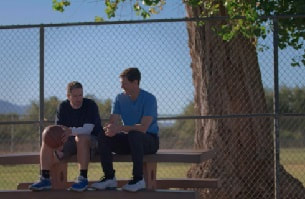
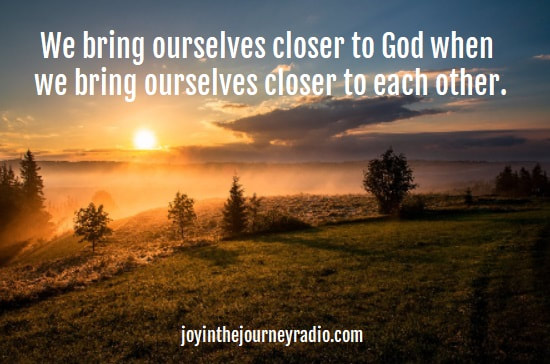




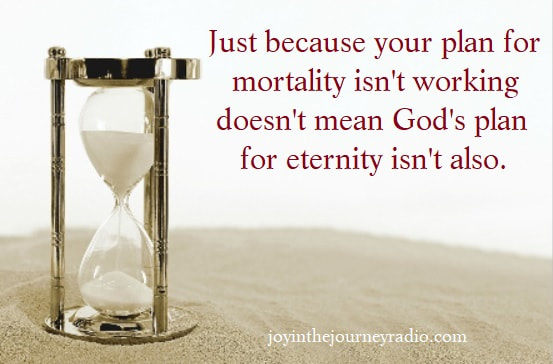



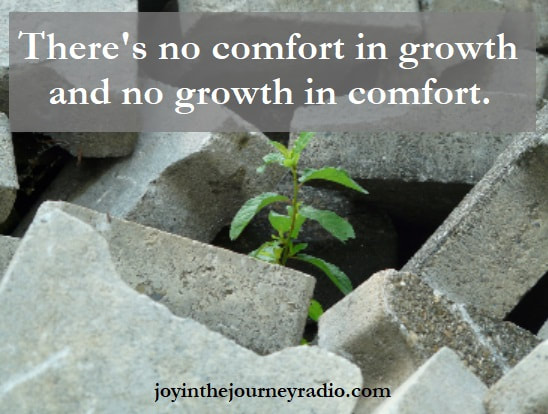

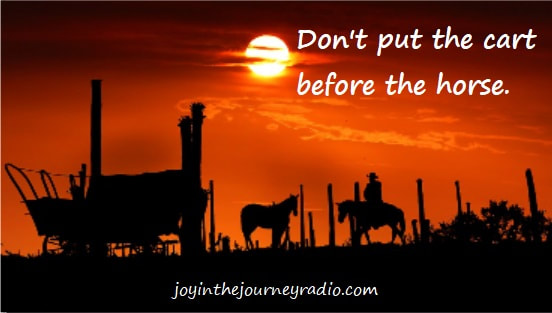
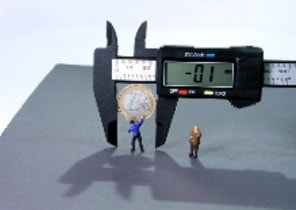





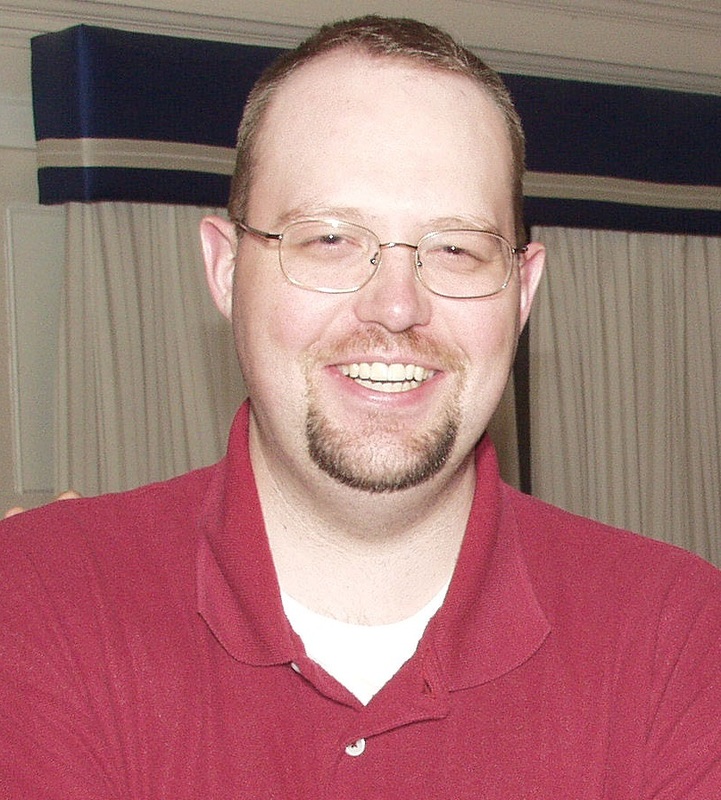
 RSS Feed
RSS Feed